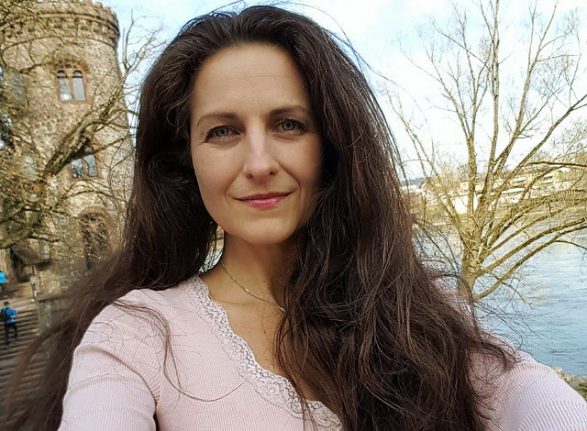SWISS CITIZENSHIP
Dutch anti-cowbell campaigner wins battle for Swiss citizenship
A Dutch woman who twice had her Swiss citizenship application refused by her local village council because she campaigned in the media against cowbells is to finally get her passport.
Published: 1 May 2017 11:07 CEST

Photo: Nancy Holten
Nancy Holten, 43, was born in the Netherlands but has lived in Switzerland since the age of eight, speaks fluent Swiss German and has children with Swiss citizenship.
She made international headlines earlier this year after the residents’ committee in her village of Gipf-Oberfrick, in the canton of Aargau, refused her citizenship application for the second time, despite the fact she met all legal requirements.
Holten appealed to the Aargau cantonal authorities, who on Friday took her side against the village committee, saying in a statement it saw “all the prerequisites for naturalization as fulfilled”.
The canton, which had recommended the village committee approve Holten’s application, said there was no justification to say that the animal rights campaigner was insufficiently integrated to become a Swiss citizen.
The canton would therefore approve Holten’s application directly, so that she would not have to apply a third time to the village committee.
The canton “absolves the members of the local council of Gipf-Oberfrick from having to deal with the application for nationality a further time,” it said.
In Switzerland local residents often have a say in citizenship applications, which are decided primarily by the cantons and communes where the applicant lives, rather than by federal authorities.
A vegan and supporter of animal rights, over the past few years Holten frequently campaigned against cowbells, claiming they damage cows' health.
She has also objected to hunting and piglet racing, and complained about the noise of church bells in the village, campaigns that have seen her regularly interviewed in the Swiss press over the past few years.
In January a spokesman for the village told The Local that villagers hadn't refused Holten’s application because of her opinions on animal rights but because she had sought such media attention. One local politician said Holten had a “big mouth”.
Speaking to The Local on Sunday, Holten said she was “relieved” she would finally be granted citizenship.
“It is an indescribable feeling. I have the feeling that I have finally ‘arrived’. Switzerland is my homeland,” she said.
The ratification of her application is now only a formality, she said. Although the residents’ committee could still raise an objection to the canton’s decision, “they certainly won’t do that. They will be pleased that the case is over.”
The decision ends a long battle for Holten, who says she has had both support and ill-treatment from Gipf-Oberfrick residents during the saga.
“I have experienced everything you could possibly imagine in the last two years. Humiliation, being cold-shouldered, praise, contempt, taps on the shoulder, encouragement, threats, workplace harassment. But I learned a lot from it and it has made me strong.”
“I have already considered moving,” she added. “It is no longer very pleasant here, even though there are people in the village who have been supportive.
“I've stayed for the sake of the children. They live in this village, have their friends here, and go to school here and this is their home environment. Perhaps I will move to the next village. We'll see.”
But whatever she decides, Holten says she will continue to campaign for animal rights, and has even been granted her own television show on the channel Schweiz 5, to air over the summer. She also has a book coming out and is making YouTube videos about animal welfare.
She expects her citizenship to be formally granted in the next few weeks.
“When I have the Swiss passport finally in my hand, I will go on holiday and use it for the first time.”
Url copied to clipboard!


 Please whitelist us to continue reading.
Please whitelist us to continue reading.
Member comments